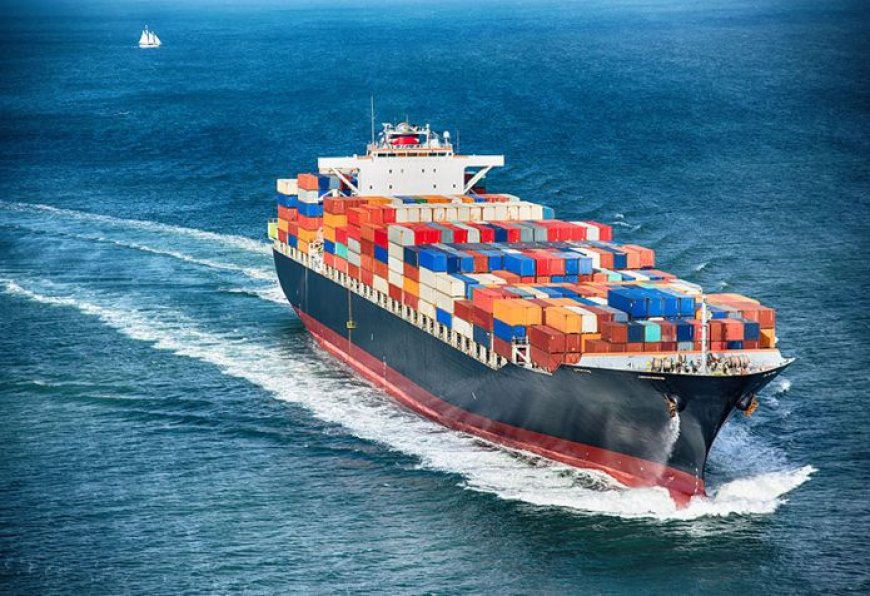How Can Fleet Logistics Support Improve Operations
In today's fast-paced world of commerce, defense, and transportation, efficient fleet logistics support is no longer a luxury—it's a necessity. This article dives deep into how fleet logistics support improves operations across various sectors, from enhancing cost-effectiveness to ensuring mission success.

In the intricate and ever-demanding world of operationswhether in the defense sector, public transportation, or private logisticsfleet management plays a crucial role. With growing pressure to optimize efficiency, cut operational costs, and meet customer demands faster and more accurately, Fleet Logistics Support has emerged as a transformative solution. But how exactly can fleet logistics support improve operations?
Lets delve into the mechanisms, benefits, and forward-looking innovations that make fleet logistics support a core pillar in any successful operational ecosystem.
1. Streamlining Resource Management
At the heart of fleet logistics support lies resource optimization. It ensures that personnel, equipment, fuel, and time are used in the most efficient way possible. By integrating smart scheduling, real-time GPS tracking, and predictive maintenance systems, organizations can cut down idle time, reduce wastage, and increase overall productivity.
For instance, logistics platforms now provide data-driven insights into which routes are the most cost-effective and which vehicles are due for servicing. This not only prevents unexpected breakdowns but also reduces downtime, ensuring operations keep running smoothly.
2. Enhancing Operational Readiness in Defense and Security
In military and defense settings, fleet logistics support is indispensable. Rapid deployment, mobility, and the availability of mission-critical assets are essential. With robust logistics backing, forces can coordinate vehicle availability, fuel supply chains, and spare parts to maintain peak operational readiness.
For example, NATO and other major defense alliances rely heavily on automated fleet logistics systems to coordinate multinational operations. These systems enable seamless inventory control, real-time vehicle tracking, and synchronized supply deliveriesensuring that troops and equipment are exactly where they need to be, when they need to be.
3. Improving Cost Efficiency Across Sectors
Businesses constantly seek to do more with less. Fleet logistics support enables companies to lower transportation costs by:
-
Reducing fuel consumption through optimized routing
-
Minimizing repair costs with scheduled maintenance alerts
-
Decreasing overtime pay through better dispatching
-
Avoiding fines and penalties due to better compliance management
Moreover, with fuel prices on the rise, companies leveraging telematics and fleet management software can closely monitor vehicle behavior such as idling, harsh braking, and unauthorized usageallowing them to implement corrective actions swiftly.
4. Boosting Sustainability and Eco-Friendly Practices
Sustainability is no longer optional; its a corporate responsibility. Fleet logistics support helps companies align with green initiatives by:
-
Implementing eco-routing algorithms that reduce emissions
-
Transitioning to electric or hybrid fleets and managing their specific logistics needs
-
Monitoring carbon footprints for each trip and adjusting strategies accordingly
Such practices not only contribute to the environment but also attract environmentally-conscious clients and investors.
5. Enhancing Customer Satisfaction and Service Levels
In industries like e-commerce, transportation, and courier services, customer satisfaction hinges on punctuality and communication. Fleet logistics support enables real-time tracking and accurate ETA updates, keeping customers informed and reassured.
Furthermore, by analyzing delivery patterns, logistics managers can pinpoint bottlenecks and implement faster, more efficient delivery methodsultimately boosting customer loyalty and retention.
6. Data-Driven Decision Making
The most significant advancement in fleet logistics support is the integration of big data analytics. Managers can now access dashboards that show vehicle health, driver behavior, delivery timelines, fuel consumption, and more.
This treasure trove of information leads to:
-
Improved planning and forecasting
-
More effective budget allocations
-
Enhanced risk mitigation strategies
By relying on actual data rather than guesswork, decision-makers can steer operations toward maximum efficiency and reliability.
7. Future of Fleet Logistics: Automation and AI
The next evolution in logistics is automation. Autonomous vehicles, drone deliveries, and AI-powered dispatch systems are gradually entering mainstream operations. Fleet logistics support is adapting to include:
-
AI algorithms for real-time scheduling
-
Automated inventory management
-
Predictive analytics for maintenance and resource allocation
Companies that embrace these advancements will not only stay ahead of the curve but also redefine industry standards in operational excellence.
Conclusion: A Strategic Imperative
The answer to How Can Fleet Logistics Support Improve Operations? is clearthrough smarter planning, better data, and future-ready technology, it acts as the backbone of efficient and agile operations.
Whether youre managing a corporate delivery fleet, a government transport network, or a military convoy, integrating advanced fleet logistics support systems will unlock new levels of operational success.
















![Top 9 Real Estate Mobile App Developers in Riyadh, Saudi Arabia [2025 Edition]](https://www.biphoo.uk/uploads/images/202507/image_430x256_6879d0d524335.jpg)

















